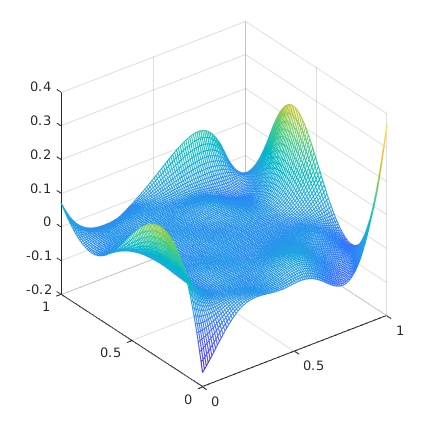
The European Research Council (ERC) Advanced Grant “DyCon – DynamicControl” at Deusto Foundation – University of Deusto offers a research training internship to Master and PhD students with an excellence track record in Applied Mathematics. The research will be mentored by Borja Sanz and Enrique Zuazua – Principal Investigator of DyCon.
The internship will be integrated in the Chair of Computational Mathematics in the excellent facilities of Deusto Foundation at the University of Deusto, located in one of the best spots downtown in Bilbao. Local expenses will be fully covered with housing and full board at the University of Deusto campus residence.
What to do?
Students interested in this offer are invited to send an expression of interest to Mrs. Miren Arretxe, miren.arretxe@deusto.es describing his/her background and motivation to work in the project.
Workplace: Deusto Foundation – University of Deusto (Bilbao, Basque Country, Spain)
Required knowledge and skills: Basic knowledge of Scientific computing (Python/C++/Matlab), Optimisation
Deep Learning and Natural Language Recognition
Coordinated by Borja Sanz and Enrique Zuazua
The goal of this project is to explore the existing Machine Learning and Deep Learning techniques, applying them in the context of Natural Language Processing, testing the limitations of this technology.
First, the trainee will get acquired with the basic literature and software in this area, to later develop an analysis project based on real data. Data will be collected from written texts, preferably in English, through internet, in an area of interest to the internship student, with the goal of making a statistical analysis of writers features such as sentiments, gender or stylometry. Other features that could be explored include: writer identification, text summaries, entity recognition or even the creation of new texts, based on the authors style.
The pioneering work in artificial intelligence by LeCun et al. [1] constitutes a key reference in this area. Using a huge amount of data this work significantly improved the performance in a classical, and hard for computers, classification task: “cat or dog?”. The area of Natural Language Processing has experienced a huge progress in recent years [2]. These methods rely on the use of a deep structure of a neural network, avoiding the traditional hand-engineered feature selection for pattern recognition. These structures are often trained by simple stochastic gradient descent methods.
Bibliography
- [1] LeCun, Y., Bengio, Y., & Hinton, G. (2015). Deep learning. Nature, 521(7553), 436.
- [2] Hirschberg, J., & Manning, C. D. (2015). Advances in natural language processing. Science, 349 (6245), 261-266.



